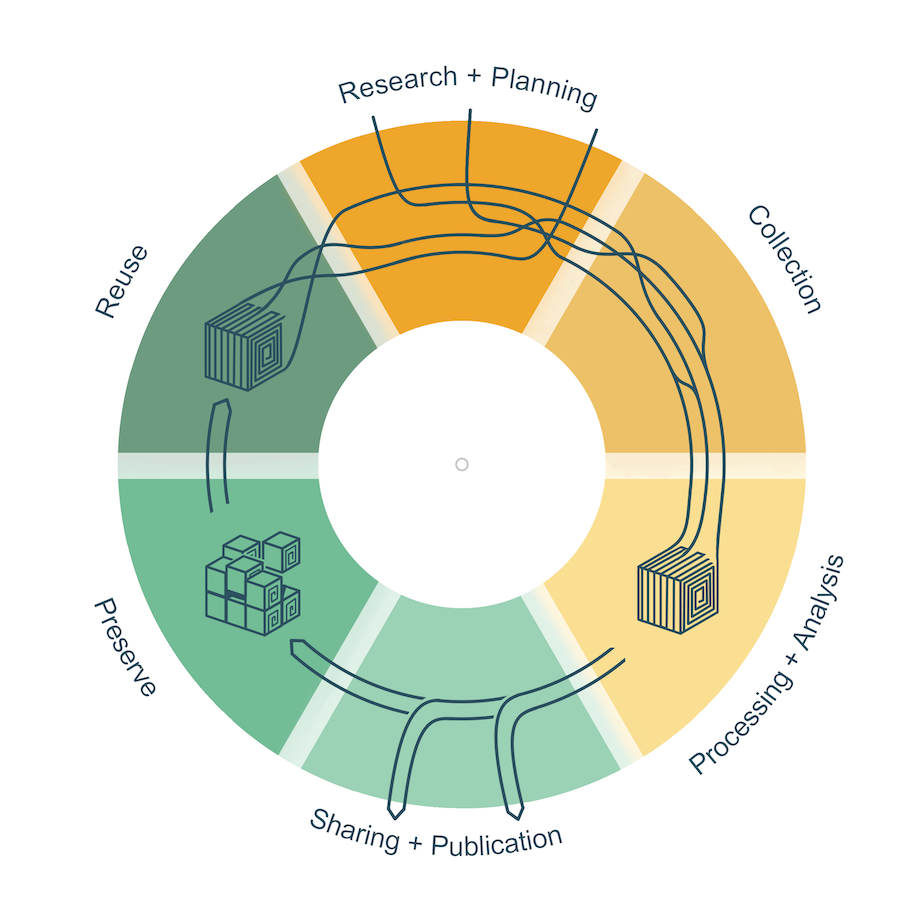Store and Publish Data
What Is Important When Publishing Data?
Make your data FAIR to make it findable and reusable by others:
- Document your data thoroughly: More on data documentation
- Share your data on a repository.
- Make sure that your data has a persistent identifier: More on persistent identifiers
- Publish the data in an open format: More on recommended formats by EPFL
- License the data as openly as possible: More on licenses
- Be careful when handling personal data: More on handling personal data
Where Do I Publish My Data?
In order for others to be able to reuse your research data, you upload it to a repository, that is, a digital archive. There are three types of repositories:
- subject-specific repositories
- institutional repositories
- generic repositories
The UZH does not have a data repository. Instead, the use of subject-specific repositories is recommended.
Linguistics
The national Language Repository of Switzerland (LaRS) is available to the linguistic community to share their data. Further national subject-specific repositories will follow.
Social Sciences
SWISSUbase is the national repository for data from the Social Sciences.
How to Find the Right Repository?
The easiest way to publish your data is by sharing it via a subject-specific repository:
- Ask the community or a data steward: Which repositories are generally used by other researchers in your discipline?
Data Stewards - Recommended repositories of research funders : Both the Swiss National Science Foundation (SNSF) and the European Commission maintain lists of subject-specific data repositories:
List of repositories by the SNSF
List of repositories by the European Commission - re3data.org is another good starting point for your research. The platform is currently the most important and largest registry of research repositories world-wide: re3data.org
What Functions Does the Repository Need to Fulfil?
It is recommended that your repository fulfills the following functions:
- It is used by your research community.
- It assigns persistent identifiers (PIDs) such as DOIs.
- It allows for or even requires rich and structured metadata.
- It allows for different access regulations.
- It requires the choice of a license.
- It provides long-term archiving of your data.
Careful with Personal and Sensitive Data
How to Share Personal Data
If you work with personal and sensitive data, you will need to consider issues of data protection before sharing or publishing your data.
Get in Touch
Get in touch with the Open Science Services if you would like to share personal data: data@ub.uzh.ch.
More information
Learn more
Long-term archiving
The Central IT offers the possibility to archive your data for the longer-term. Contact your institute's IT coordinator to ask for details.
Requirements of the SNSF
Do You Have Technical Questions?
Get in touch with the IT responsible person at your institute to store your data securely.
Do You Have Domain-Specific Questions?
Get in touch with a data steward: Data Stewards Network
